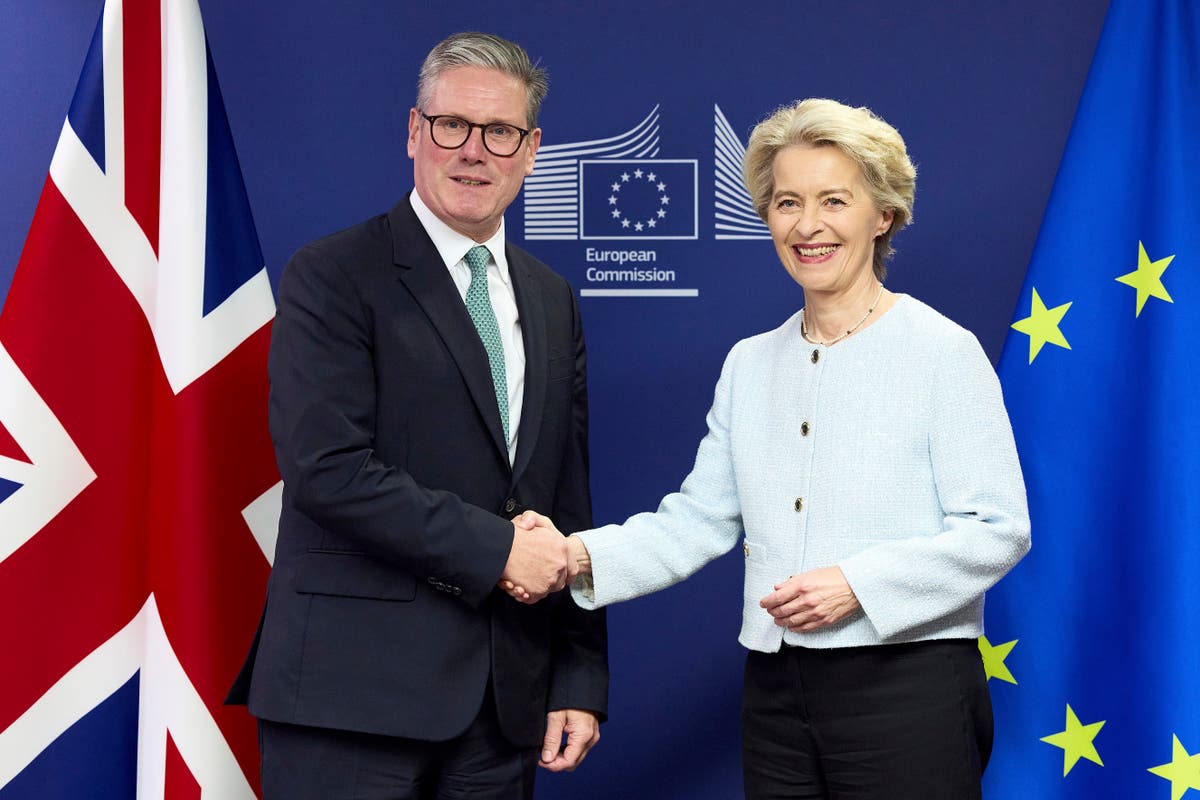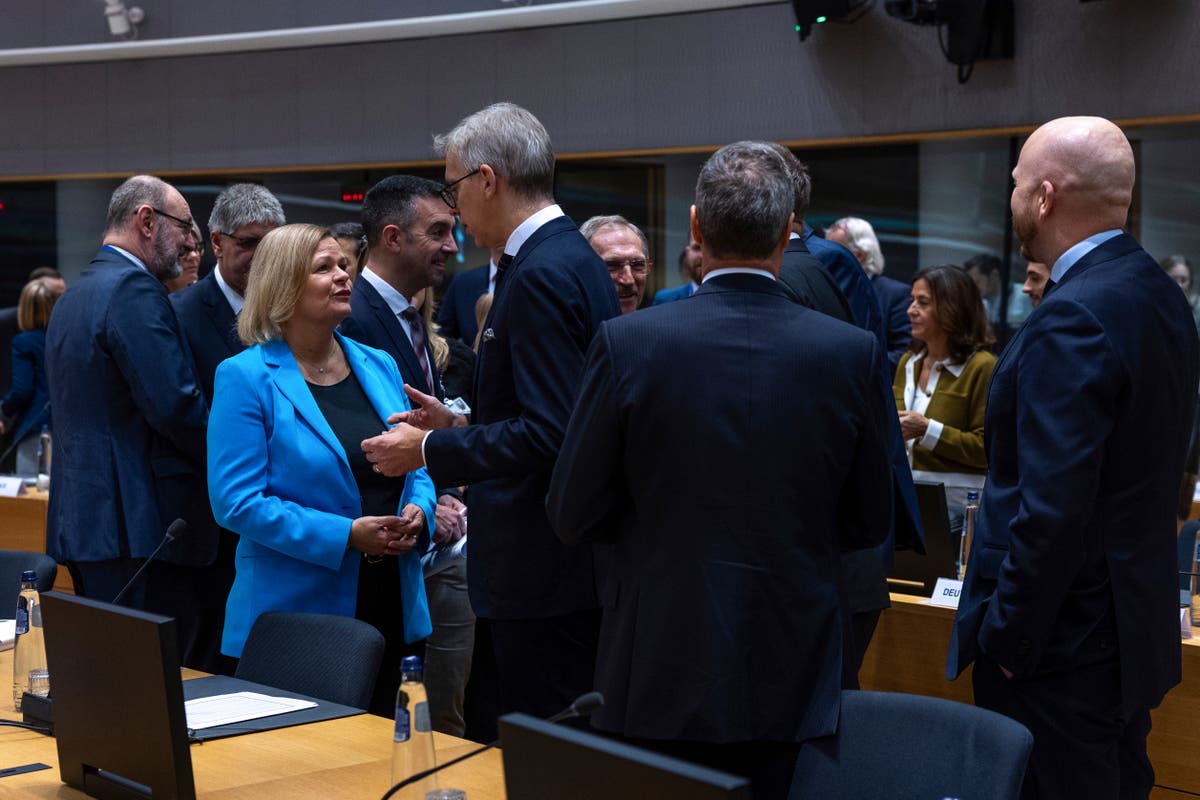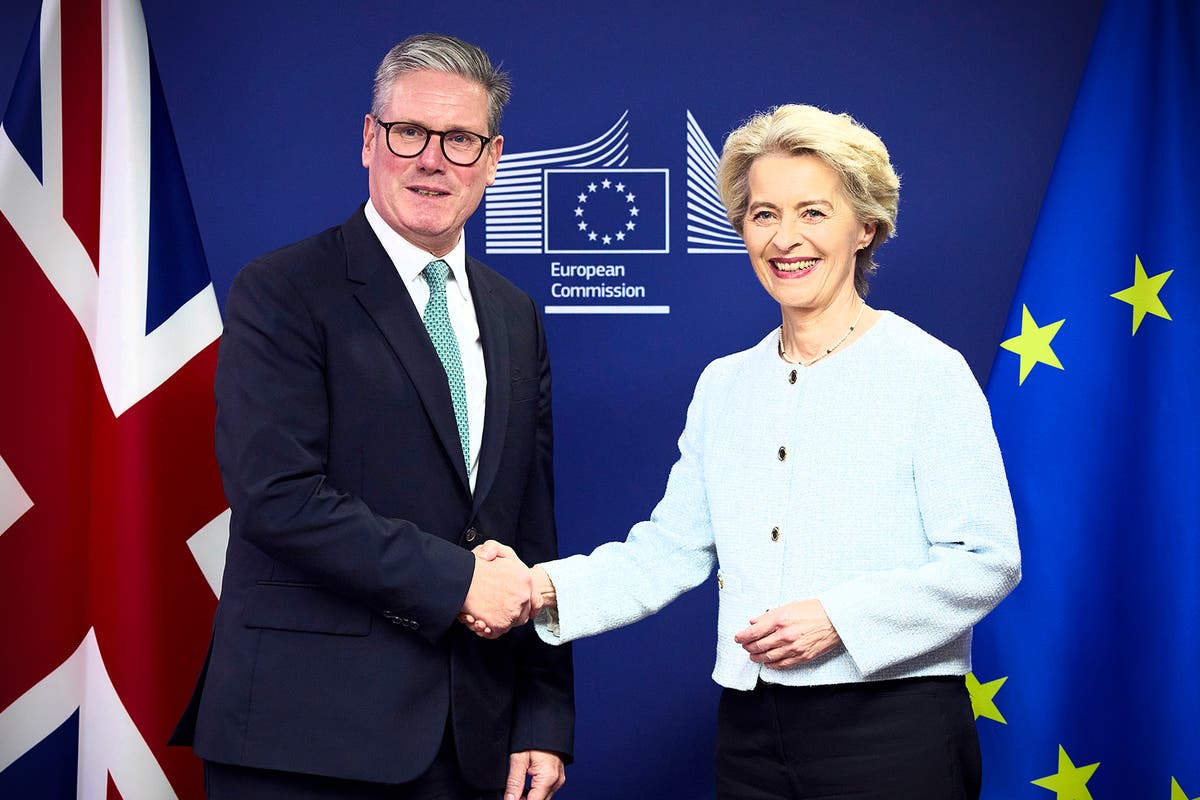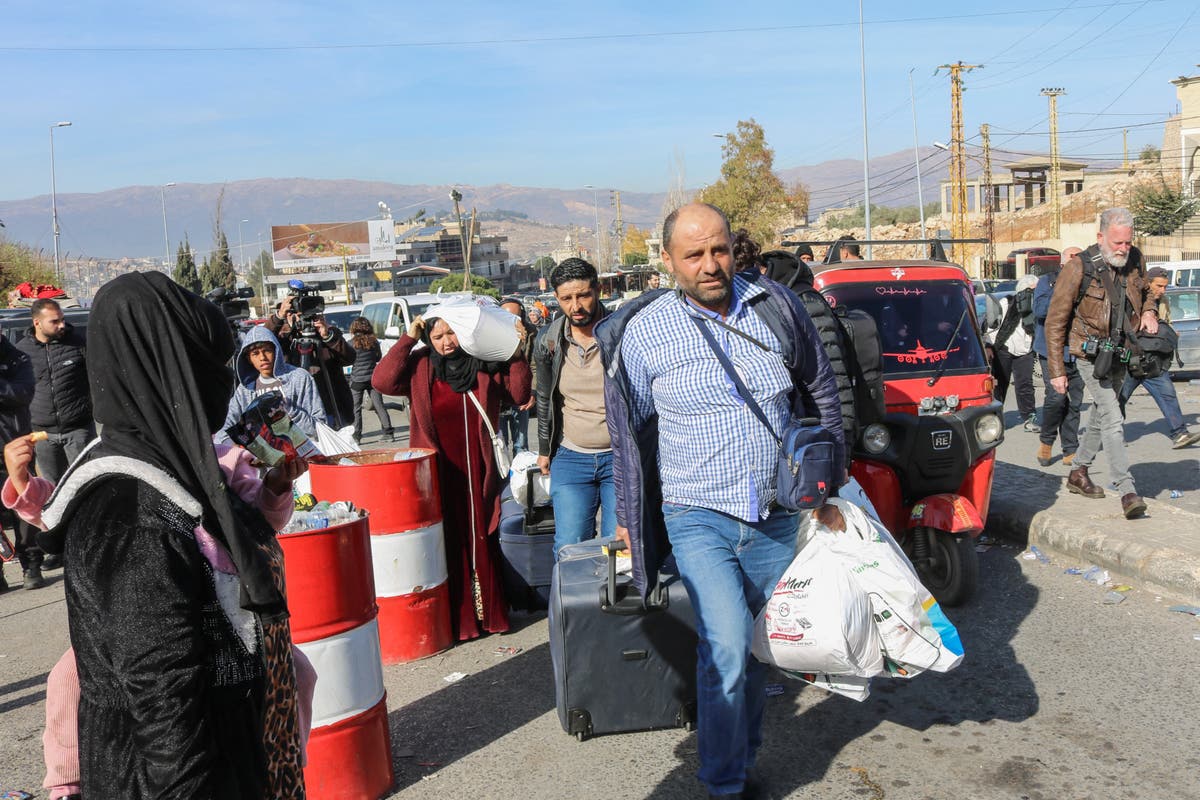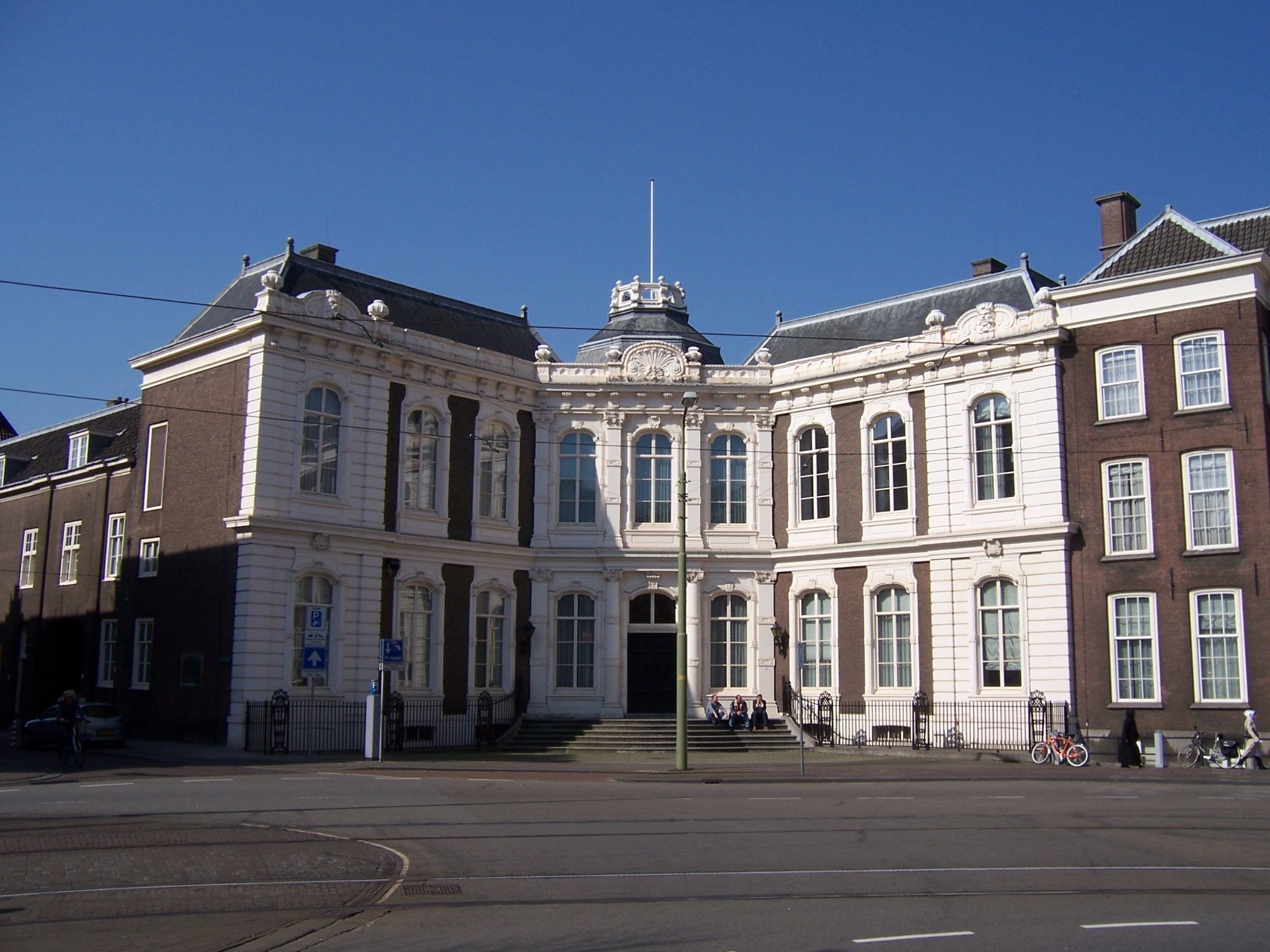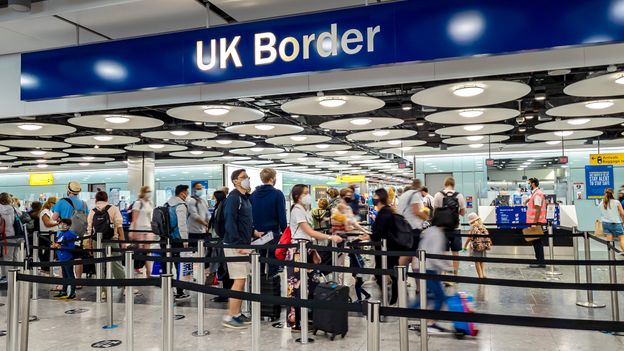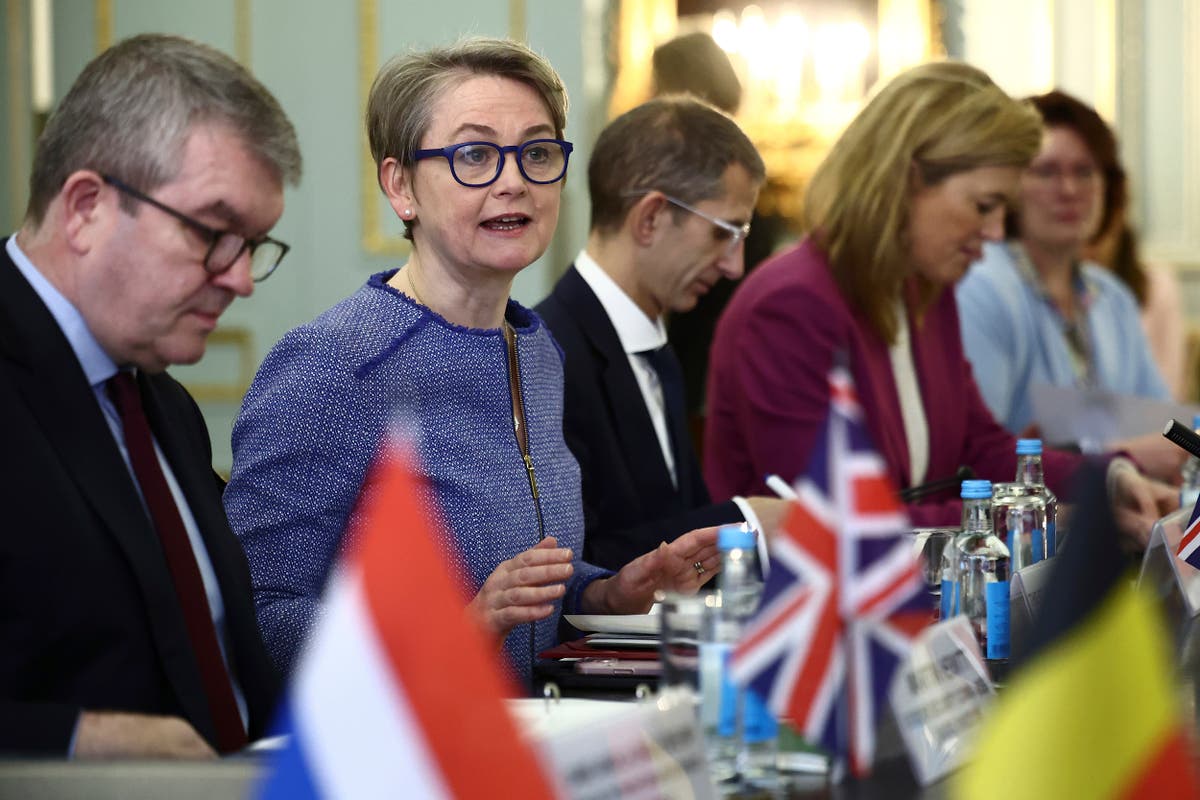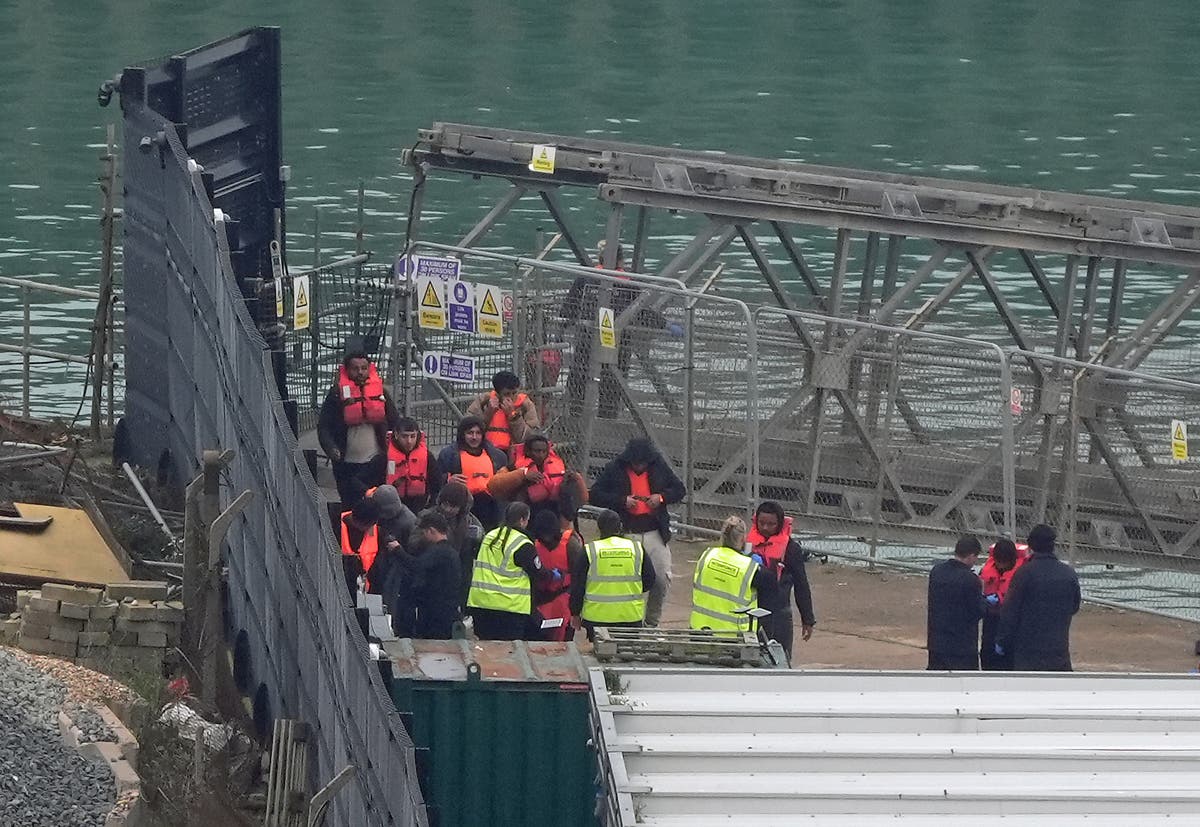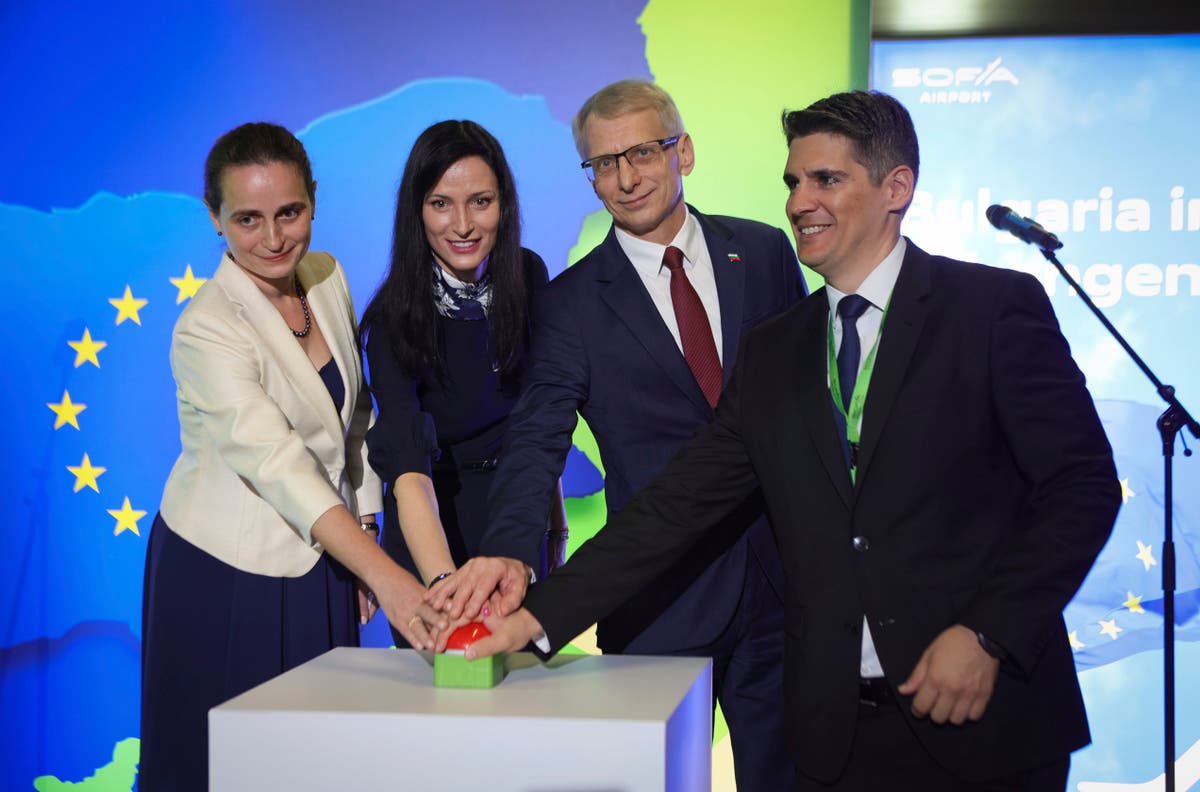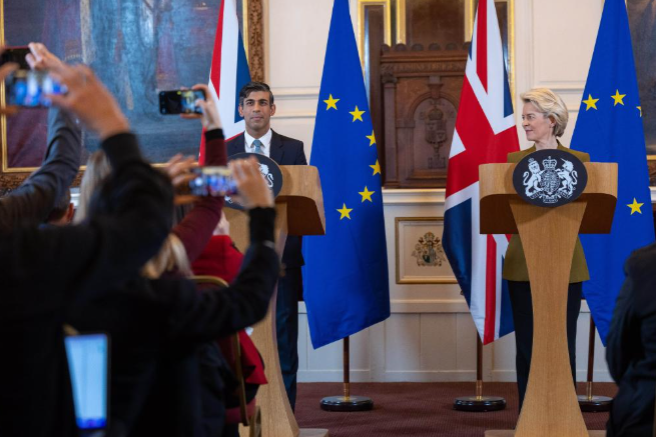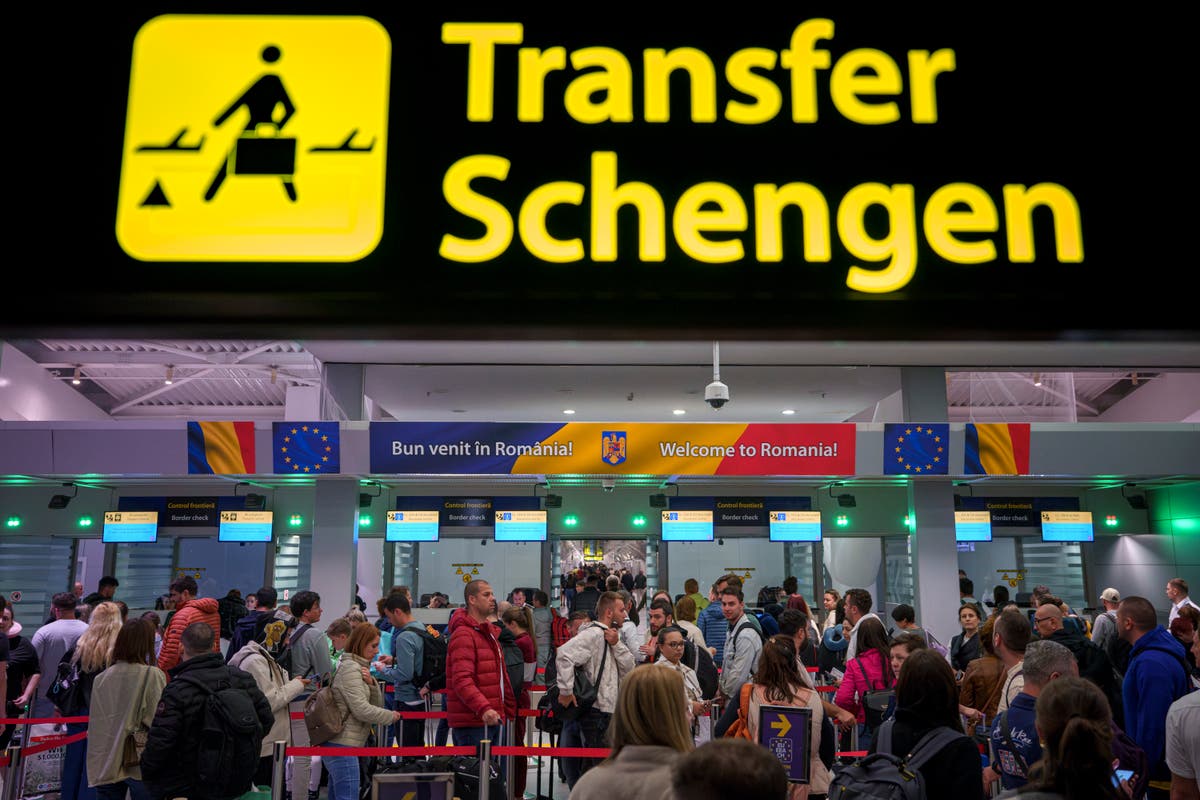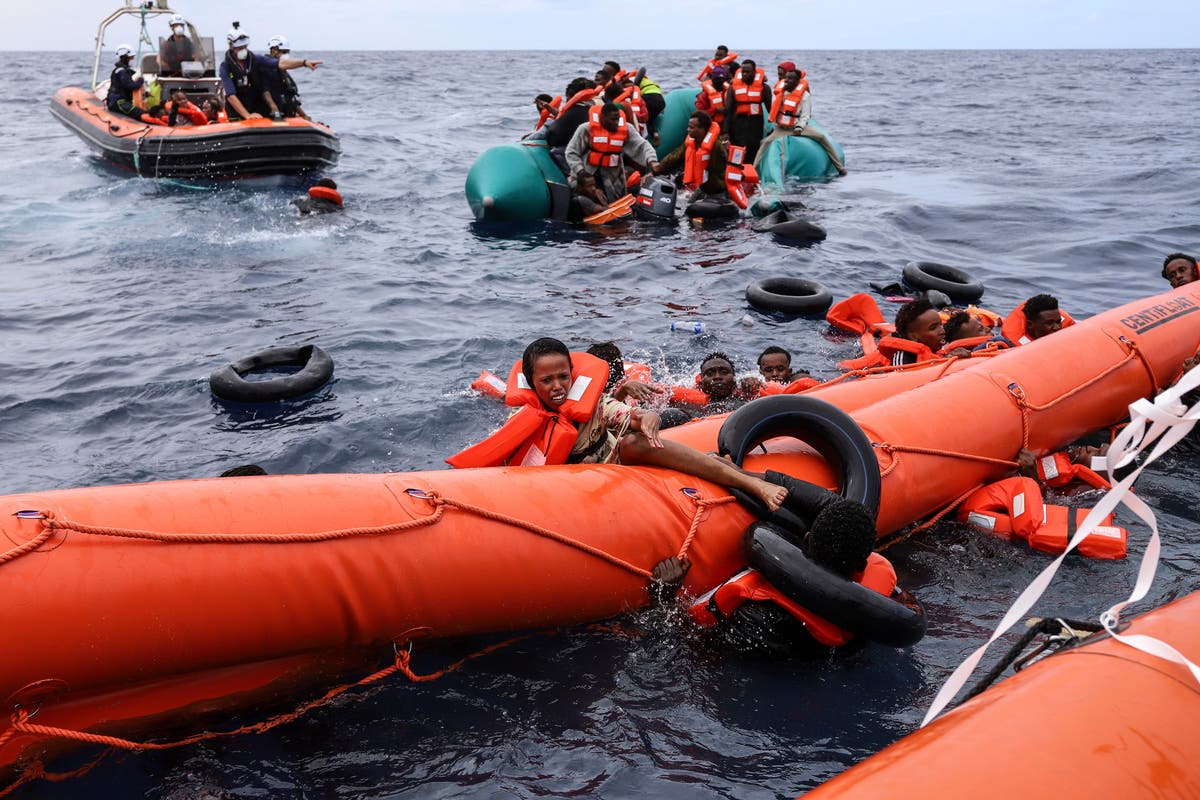
Majority of EU nations want more partnerships to stem migration from countries of origin
The IndependentFor free real time breaking news alerts sent straight to your inbox sign up to our breaking news emails Sign up to our free breaking news emails Sign up to our free breaking news emails SIGN UP I would like to be emailed about offers, events and updates from The Independent. The letter, addressed to the high-ranking officials in the EU’s executive Commission, indicated that officials in signatory countries believe further solutions are needed, saying that the migration situation “will require all of us to think outside the box and jointly find new ways to address this issue at EU level." On Wednesday, the EU endorsed sweeping reforms to the bloc’s failed asylum system as campaigning for Europe-wide elections next month gathers pace, with migration expected to be an important issue. The letter by the 15 member countries said that the bloc should boost “partnerships with key countries, especially along the migratory routes, by changing our focus from managing irregular migration in Europe to supporting refugees as well as host communities in regions of origin.” The countries call on the Commission “to identify, elaborate and propose new ways and solutions to prevent irregular migration to Europe” and “comprehensive, mutually beneficial and durable partnerships” with nations located along the migratory routes, saying “different ideas for optimizing such partnerships should be explored.” The signatories cited, among other examples, deals that the EU has make with Turkey and Tunisia and that Italy made with the Albanian government in which Albania will host thousands of migrants picked up at sea and transferred there by the Italian authorities. The letter said it was important for member states to have the ability to transfer asylum seekers to “a safe third country alternative" if such an alternative exists, while also saying any new measures would be in full compliance with “international legal obligations.” The reform passed in Brussels was aimed at resolving issues that have divided the EU since well over 1 million migrants swept into Europe in 2015, most fleeing war in Syria and Iraq.
History of this topic

Europe finally faces up to migrant crisis: Germany looks set to vote in anti-migrant chancellor, France blames soft UK for Channel crossings, Ireland faces homeless crisis… while hard-right Meloni HAS
Daily Mail
Poland’s president criticizes planned suspension of right to asylum as a ‘fatal mistake’
LA Times
Unauthorized migration into the EU declined despite heated politics
The Independent
Europe's fury as Germany tightens its borders: Neighbours say they WON'T take back rejected migrants and declare Berlin's plan to stem tide of asylum seekers and Islamist terror a threat to free movem
Daily Mail
Labour facing fresh calls to back EU youth mobility scheme as party launches ‘new approach’ on migration
The IndependentMajority of EU nations want more partnerships to stem migration from countries of origin
Associated PressEU agrees on a new migration pact. Mainstream parties hope it will deprive the far right of votes
Associated Press
European Union nations endorse sweeping reforms of migrant asylum system
LA Times
European Parliament passes asylum and migration reforms
Al Jazeera
The EU’s migration policies and the end of human rights in Europe
Al Jazeera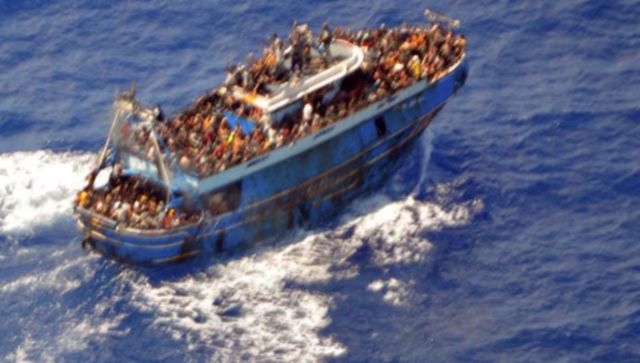)
Fears over asylum-seekers' rights as EU leaders hails migration deal breakthrough
Firstpost
EU reaches agreement on reforming bloc's migration laws
The HinduEU hails a migration deal breakthrough after years of talks. Critics worry about rights abuses
Associated Press
EU reaches agreement to overhaul migration system, tighten asylum rules
Al Jazeera
The EU agrees on a migration deal, but critics warn of possible rights abuses
NPR
As Migration to Europe Rises, a Backlash Grows
Live Mint
UK ‘to get access to EU intelligence on migrant crisis in new deal’ – report
The IndependentEU countries overcome key obstacle in yearslong plan to overhaul the bloc’s asylum rules
Associated PressSouthern EU nations urge for a new migration and asylum deal and beefed-up surveillance
Associated PressEU struggles to update asylum laws three years on from a sweeping reform. And the clock is ticking
Associated Press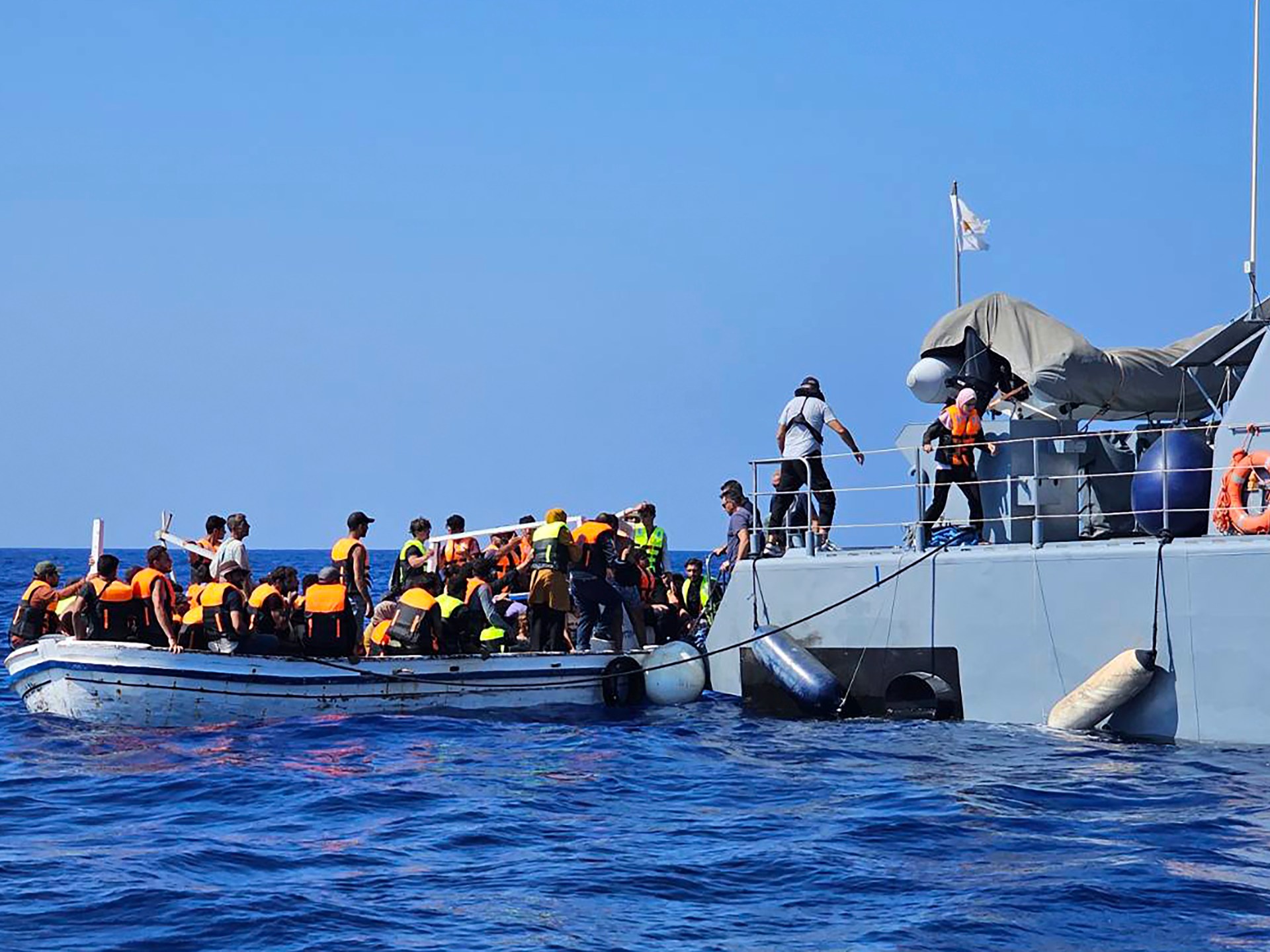
Analysis: Concerns raised in Brussels over EU-Tunisia migration pact
Al Jazeera
Asylum applications in Europe continue to rise even after last year’s major surge
LA Times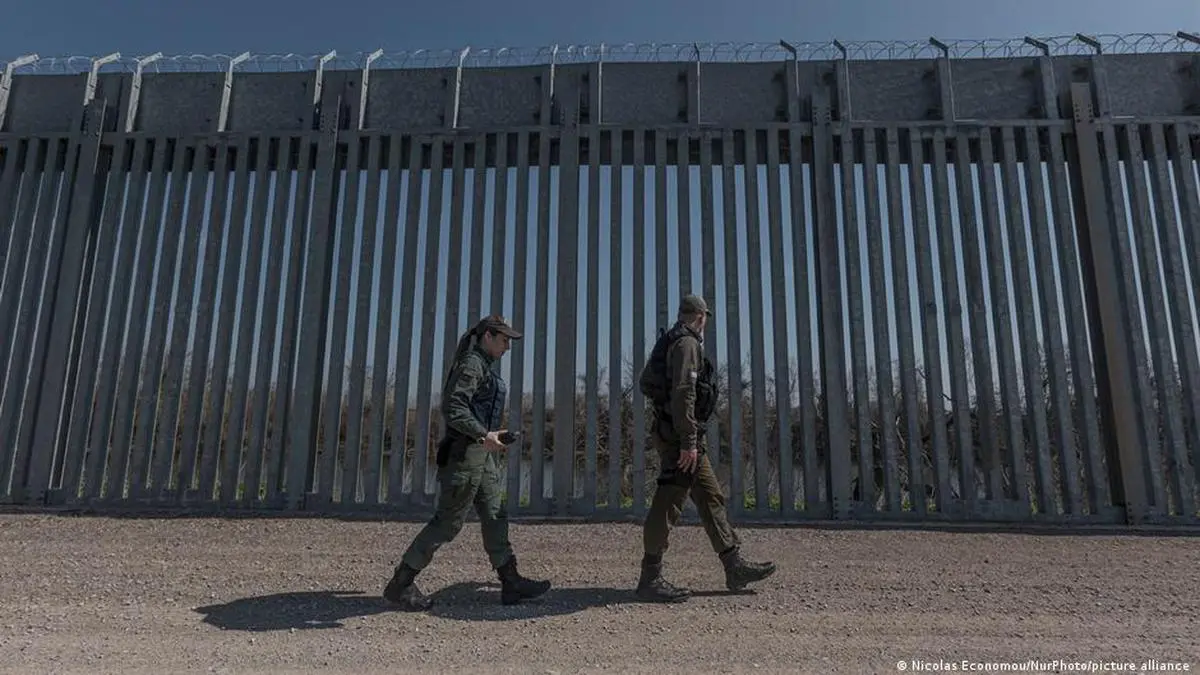
MIGRATION | EU and the migrant ‘crisis’
The Hindu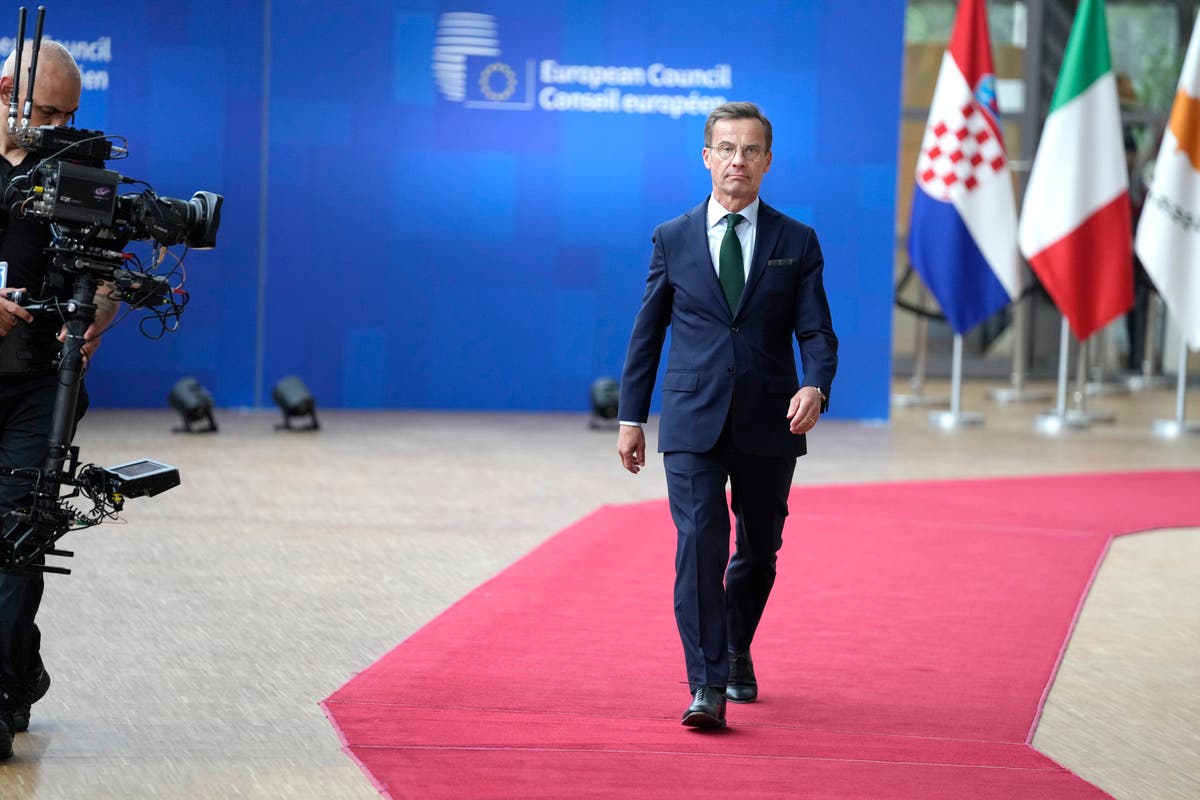
Poland vows not to bow to EU migrant rules and threatens to veto any refugee relocation plan
The IndependentGerman leader defends deal to stop migrants at EU borders, says old system was ‘dysfunctional’
Associated Press
EU members sign deal to overhaul asylum procedures
Al Jazeera
EU Reaches Long-Stalled Migration Deal on Hosting Asylum Seekers
News 18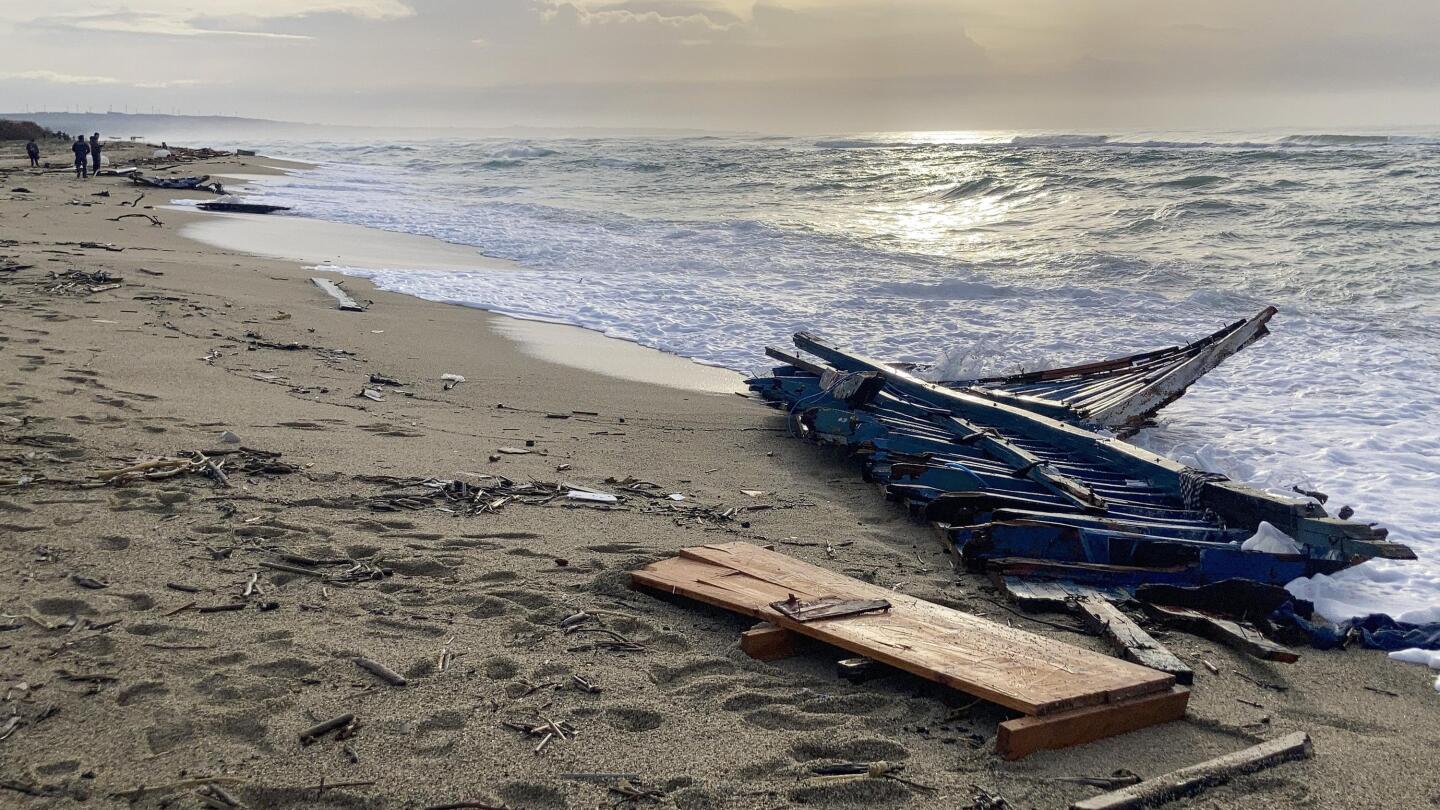
After years of bickering, EU claims breakthrough in migration talks
Associated Press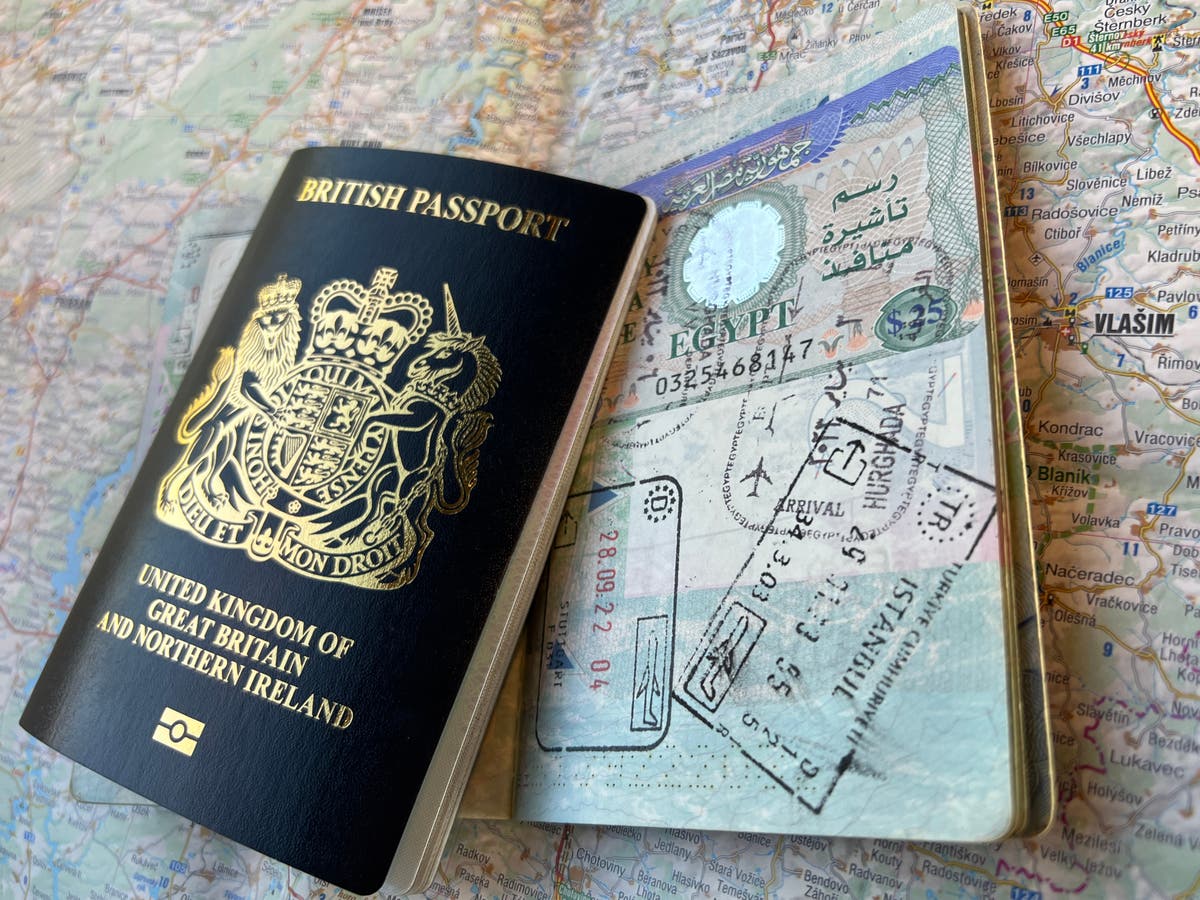
Be careful what you wish for: Europe has delivered exactly the post-Brexit borders we demanded
The Independent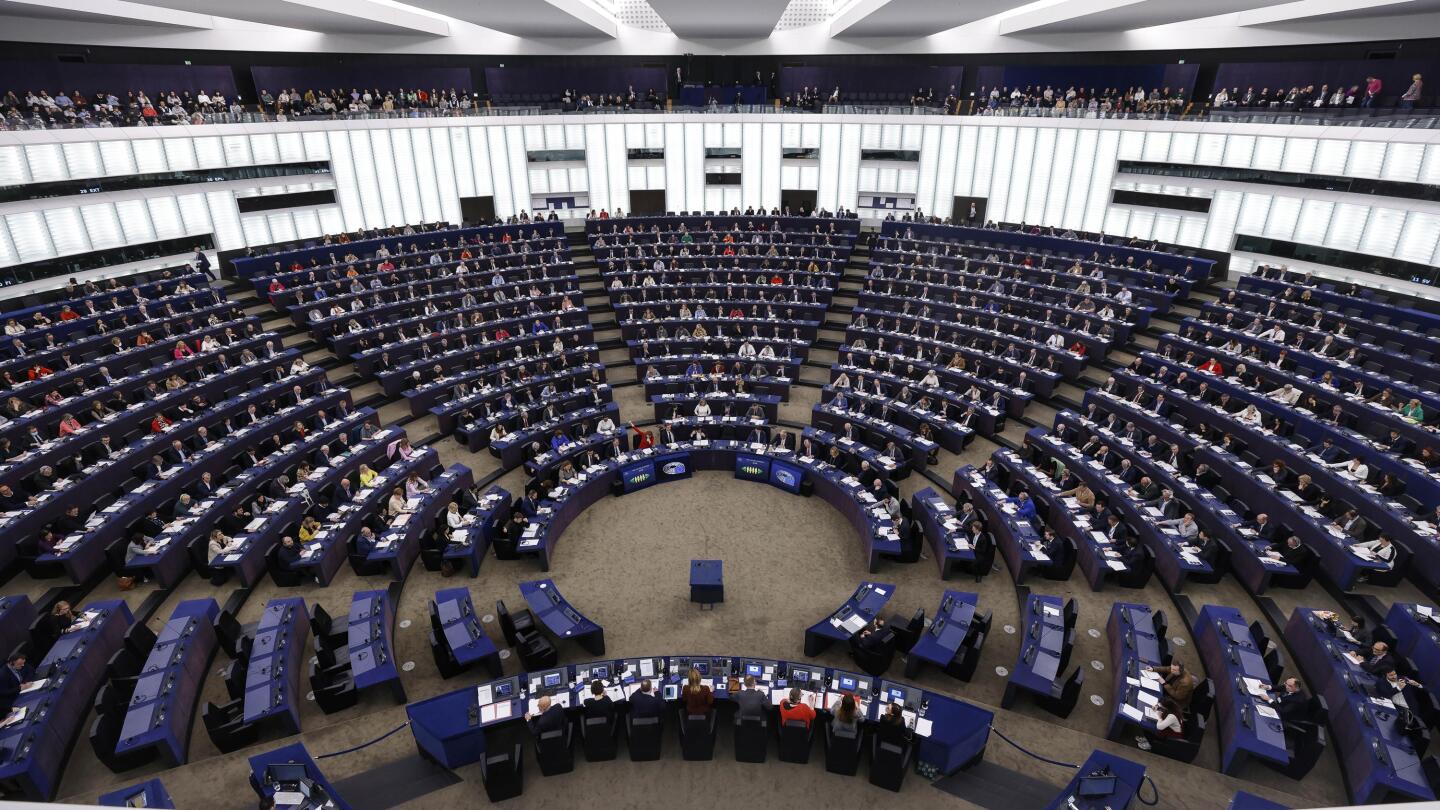
EU lawmakers approve migration plan, set clock ticking
Associated Press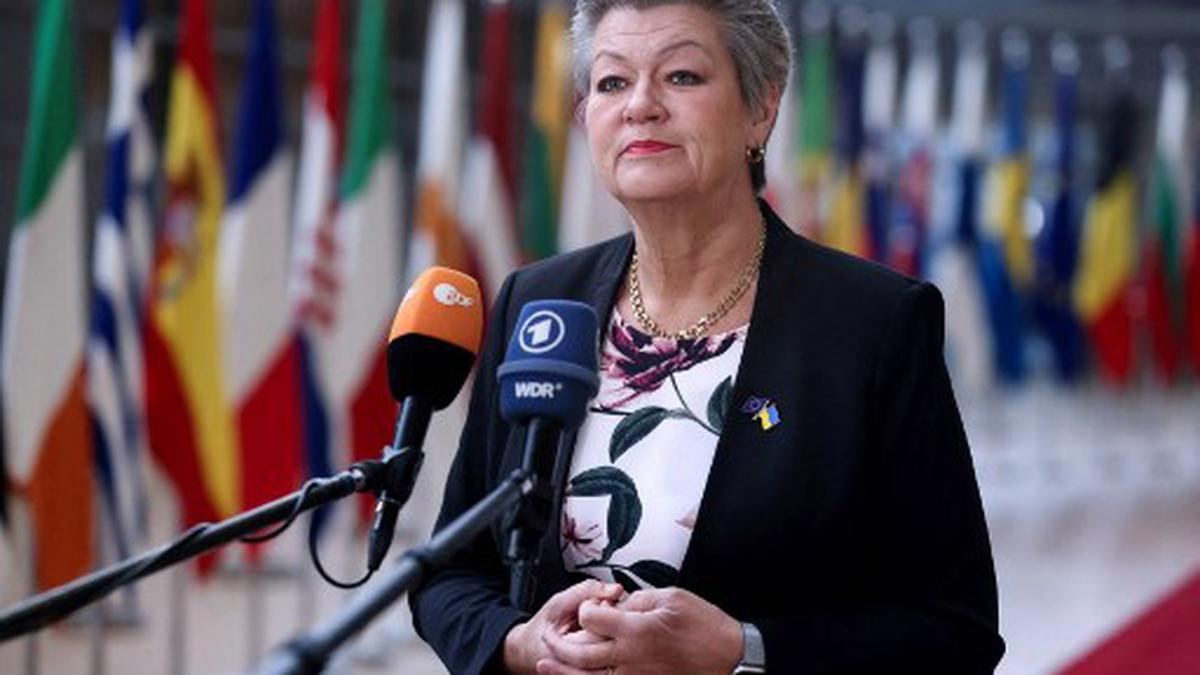
EU home affairs chief warns UK asylum plan may be illegal
The Hindu
EU sees 6-year high in numbers of people seeking asylum
Associated Press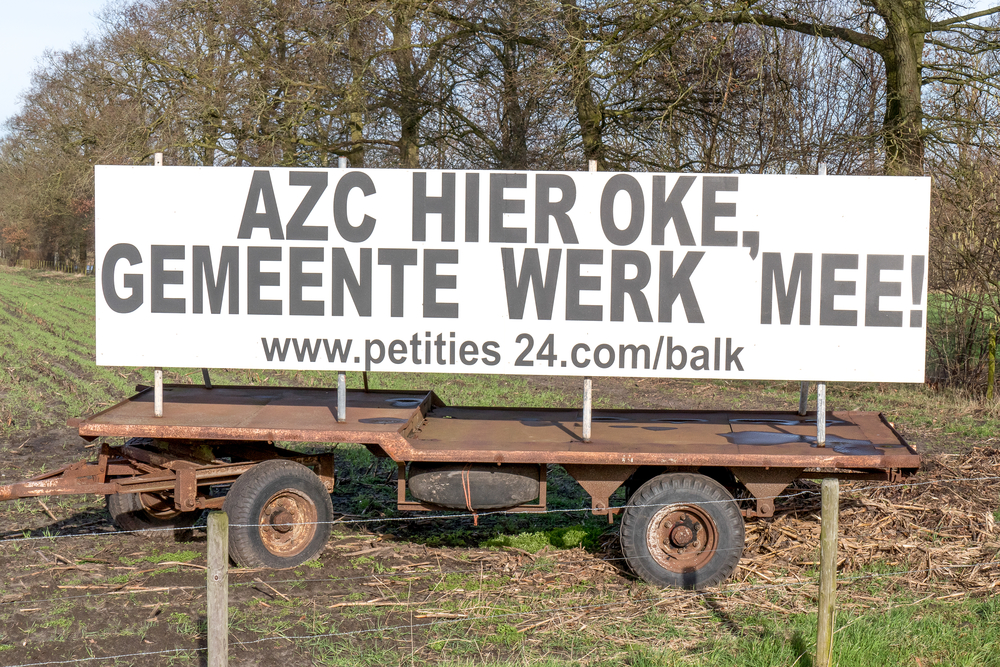
Deals to return asylum seekers 'have little effect', researchers say
Dutch News
Deals to return asylum seekers 'have little effect', researchers say
Dutch News
Mediterranean nations criticize EU solidarity on migrants
Associated Press
In 2021, the EU hardened its borders as new refugee crises flared
Al Jazeera
EU nations on Med coast renew push for migrant quotas
Associated Press
Dutch divided on new EU migration pact, and the election will heighten divisions
Dutch News
Dutch divided on new EU migration pact, and the election will heighten divisions
Dutch News
EU proposes new asylum system to help frontline nations
Associated Press
EU tries yet again to fix broken down asylum system
The IndependentDiscover Related


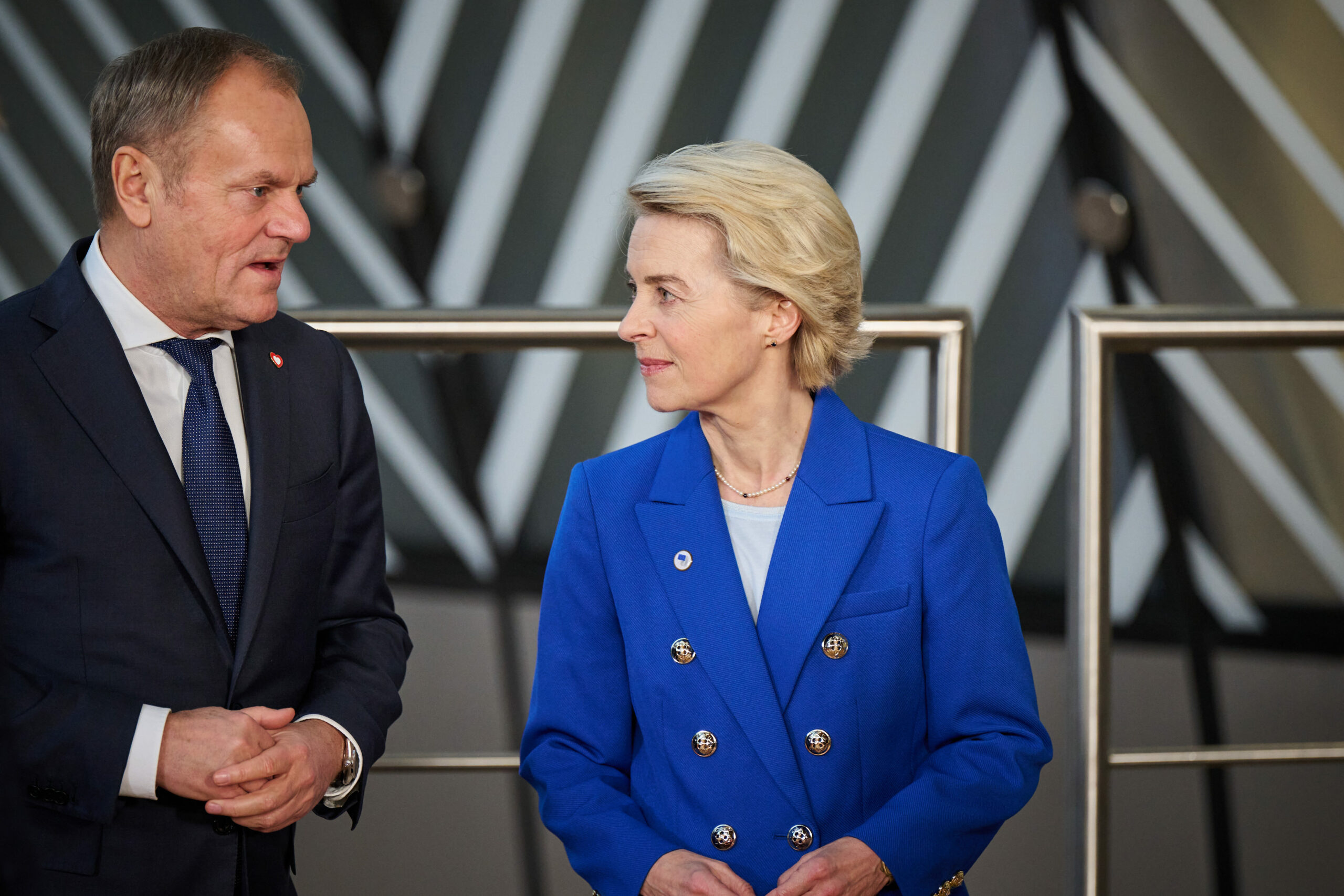

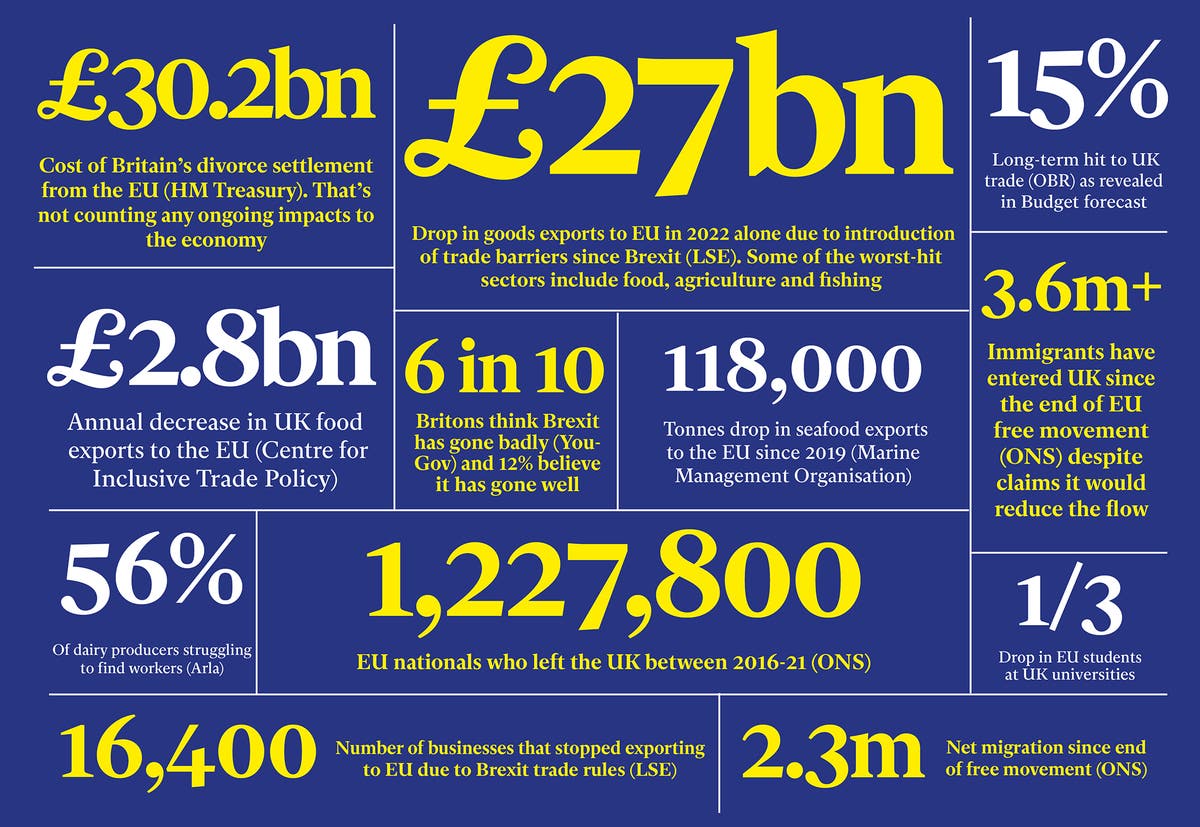

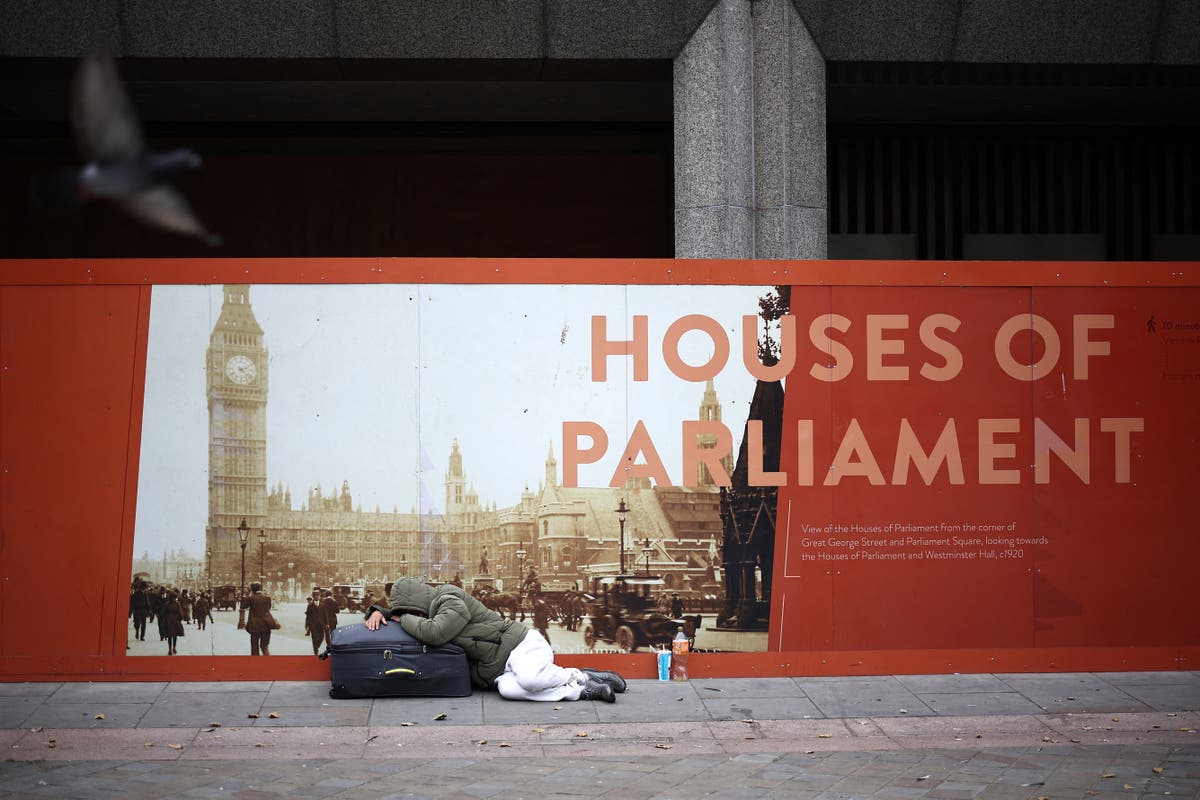
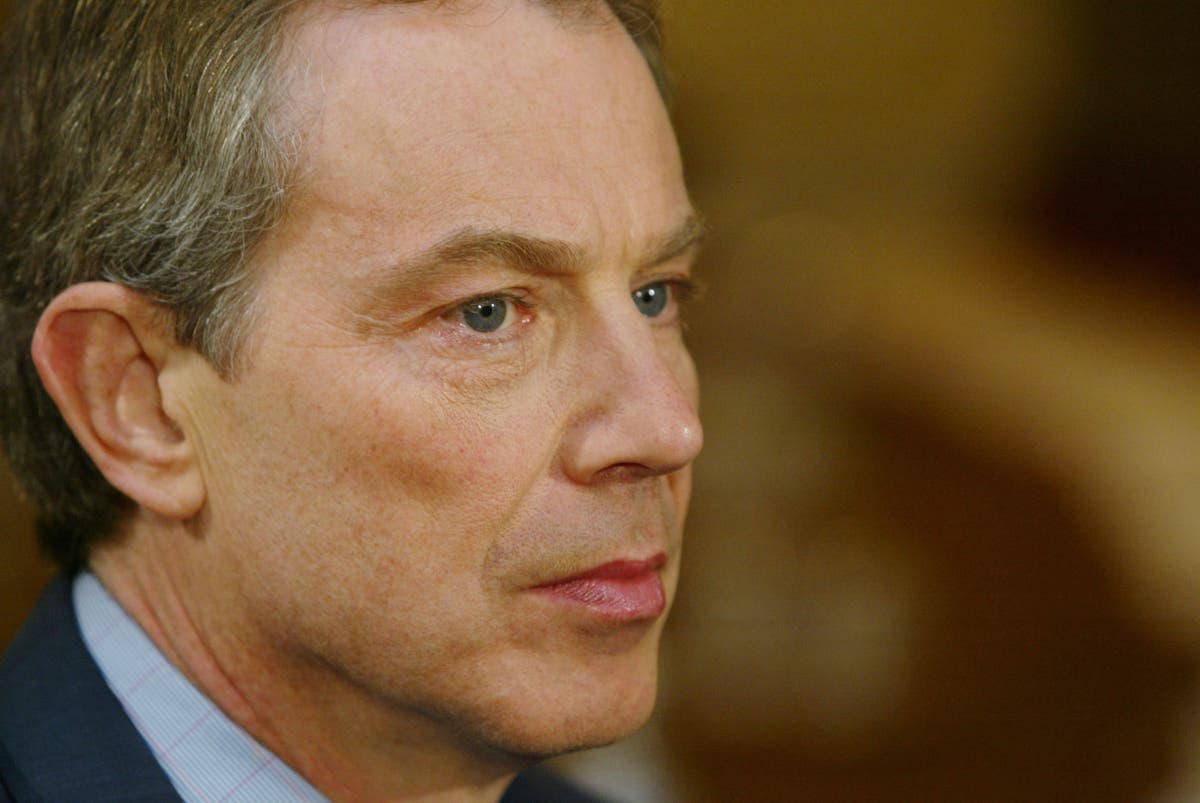



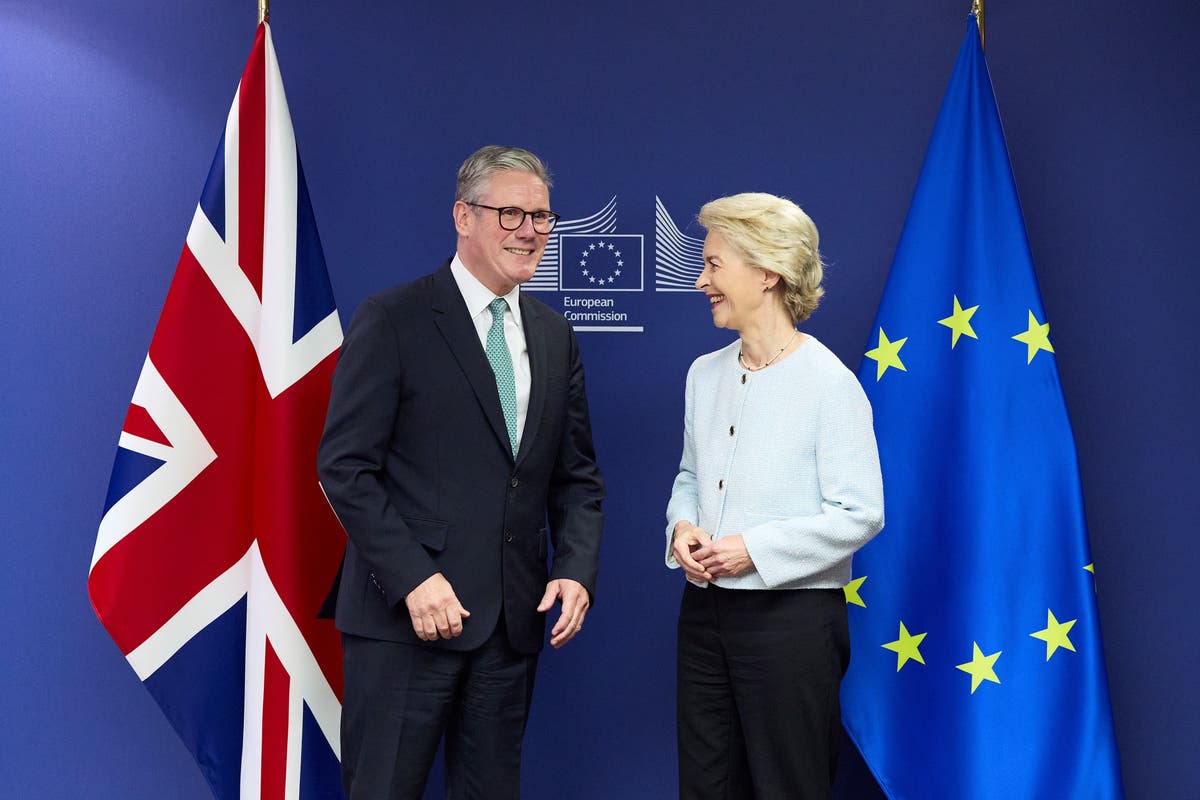
)

